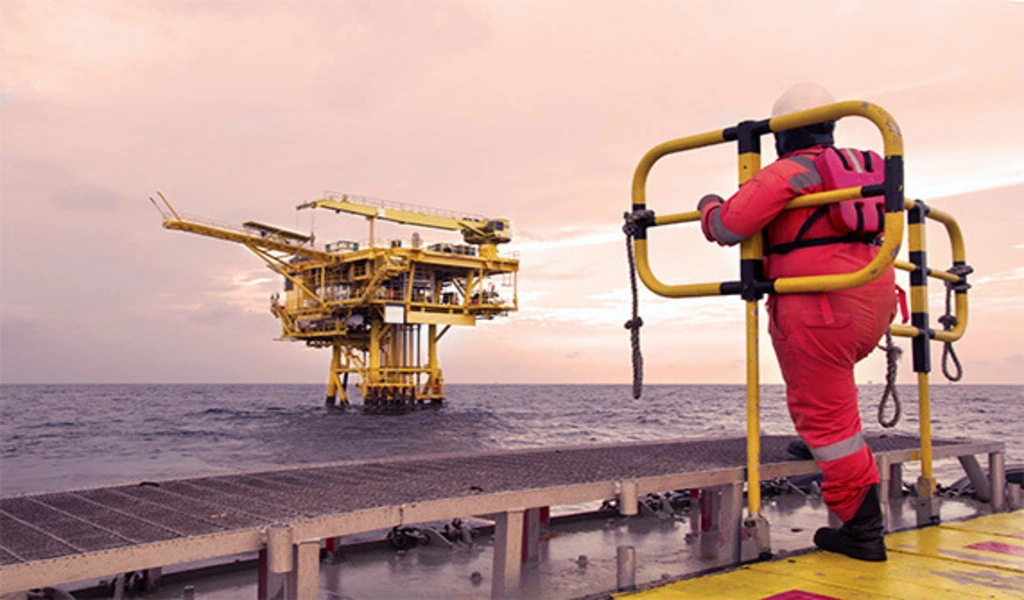Learning
Ensuring Safety for Offshore Workers a Work in Progress

If the occupation “offshore worker” isn’t included in the world’s most dangerous jobs, it certainly deserves a prominent runner-up position.
Offshore workers who belong to the global shipping industry face numerous perils on a daily, if not hourly, basis, and it’s only through rigorous training that many survive injury, which, at times, can be serious.
Says the professionals at The Chopin Law Firm LLC, offshore injury lawyer offshore workers face numerous risks and challenges.
The work is physically demanding, and workers are always within close proximity to heavy equipment and large, moving machinery, which can lead to serious personal injuries and even fatalities if the employer or another employer is involved.
There are also occasions when maritime workers are caught up in devastating accidents, such as oil rig explosions, which can cause serious burns and death. Slip and fall issues are also a clear and present danger.
With this in mind, what can be done to ensure the safety of offshore and maritime workers? According to a recent report by Safety Culture, offshore safety is a priority for many industries. Here’s a glimpse at what’s presently being done to make the job as safe as possible in the 2020s.
Defining Offshore Safety
The safety of offshore workers in the gas and oil industry cannot be overstated. Refusing to follow safety protocols or even acting carelessly can and will lead to incidents that put your organization, its employees, and the environment at great risk. Offshore safety is said to include a list of guidelines and best practices for businesses to follow when operating at sea to ensure everyone’s safety and that dangerous risks are kept to a minimum.
Many industries operate at sea, but only offshore safety is specifically geared toward the natural gas and oil industry. Failure to follow the safety guidelines, taken along with accidents, can lead to catastrophic environmental damage and serious injury or even death to workers. This is why offshore safety has become so important to these industries.
Regulating Offshore Safety
There is said to be a set of federal regulations that are engineered to enhance offshore safety for drilling oil rigs that operate out at sea. The governmental agency in charge of regulating the entirety of offshore safety is the BSEE or Bureau of Safety and Environmental Enforcement. At present, the BSEE is said to be responsible for regulating offshore oil and gas, which naturally includes offshore safety.
The ultimate goal of the BSEE is to guarantee that all offshore gas and oil practices are compliant with federal regulations which have been designed to encourage a fair and safe working environment.
The bureau is also in charge of ensuring that the environmental impact of offshore practices does not exceed those established by the government in Washington, D.C.
When Offshore Safety Guidelines are Not Followed
If a company is found to be lacking in compliance or openly violating offshore safety regulations at sea, the consequences will result in the form of both civil penalties and large cash fines. The average fine is around $50,000+/- for each day the organization is lacking in safety compliance.
It’s because of these hefty fines that businesses are openly encouraged to follow all safety regulations and rules according to specifications laid out by the BSEE. By ensuring full compliance, the business and its offshore and maritime employees can operate in a much safer environment.
Who is Expected to Practice BSEE Regulations
Says Safety Culture, offshore safety regulations apply almost entirely to the gas and oil industries. With so many variables and unknowns for regulators to consider when working on an oil rig, safety is by far the top priority.
It’s because of this that all organizations and companies operating at sea while employing offshore workers comply with all rules and regulations as set forth by the bureau.
This ensures that organizations are not only in legal compliance, which means they will avoid penalties and fines, but more importantly, that offshore and maritime workers are operating in a safe environment where their well-being and overall health are not being placed at needless risk.
In the end, choosing to be an offshore worker can be a rewarding job both financially and personally. Working on an offshore natural gas or oil rig can be adventurous.
There is also a special camaraderie that exists among workers who toil long hours both day and night. But there is also a special satisfaction in knowing your work is essential to a country that craves power.
However, safety protocols must be adhered to at all times, or the job can easily turn deadly. Everyone must play their own part in keeping the offshore workplace safe. You might even say that safety for an offshore worker is always a work in progress.
SEE ALSO: How to Login Amazon Kindle Direct Publishing? – Amazon KDP Login


























